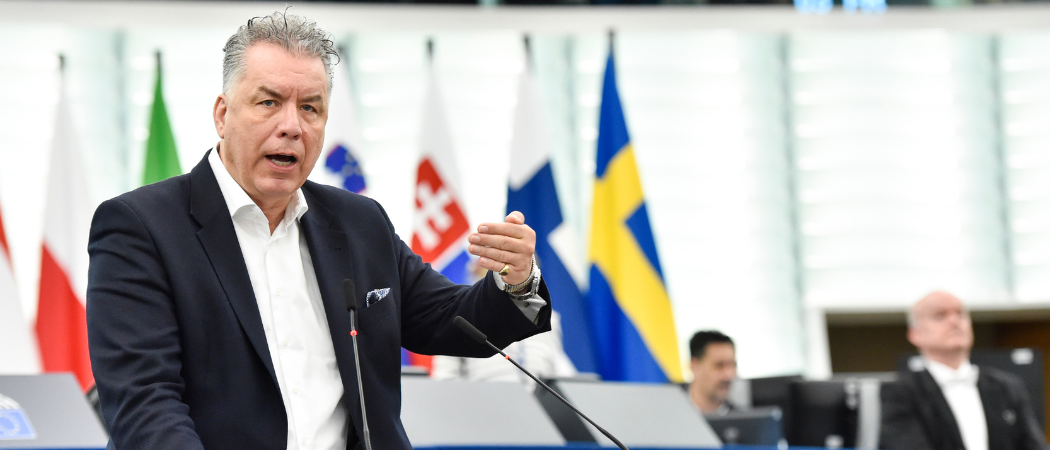In Q&A with Science|Business, Horizon Europe co-rapporteur discusses his plans for a new term in the European Parliament

MEP Christian Ehler. Photo credits: Eric Vidal / European Union
Christian Ehler, the German MEP who has been playing a leading role in the EU’s research framework programmes, is running for another term in the elections this week.
Ehler has been a member of the European Parliament since 2004 and in addition to the negotiations for Horizon Europe has been involved in other major R&D policy files, such as the net-zero industry. He also chairs the Panel for the Future of Science and Technology (STOA), the European Parliament's science think tank.
Science|Business asked Ehler what his plans are for the next term if re-elected.
Among the top priorities, Ehler wants to continue the ongoing fight for a bigger legislative role for the Parliament in Horizon Europe association deals, and to continue work on European legislation on academic freedom.
Q: Looking back at the current mandate, beyond getting Horizon Europe legislation over the line, what was your most significant achievement?
A: Keeping the Parliament involved in the implementation of Horizon Europe. In a term where we got a lot of legislation it was easy to get completely distracted and forget about implementation of the programme. We have avoided that [happening]…. We fostered debates on association, on the European Innovation Council, on budget cuts, and ensured that the Parliament was actively involved in all co-creation processes.
Q: With the EU elections underway, what has been the feedback from your constituency? Policymakers in Brussels have been talking a lot about citizen engagement in science, but is the public interested in how science policy issues unfold in Brussels?
A: The universities and innovative companies are very interested in Horizon, but do not follow the developments in detail. Normal citizens have no idea about the framework programme, and I think that is fine. Citizen engagement in science, and citizens being interested in the details of European science policy, are two very different issues.
Q: If re-elected, are you planning to be a rapporteur on Framework Programme 10?
A: It is hard to plan to be the rapporteur on any file, but you can be sure that if I am re-elected I will get involved in the legislative process, because it is too important to be left to MEPs who only care about the programme when it draws media attention. We need lawmakers involved who understand the programme, who can critically question the Commission’s proposals and who have the knowledge to engage with stakeholders rather than simply copy/paste questions or amendments from lobbyists.
Q: What would be the most important issues to be solved in the legislation for FP10?
A: It seems time for re-establishing the core objectives of the framework programme and to reflect them in the structure of the programme, as well as the instruments in the programme. The European Research Council, Marie Skłodowska-Curie Actions and European Innovation Council seem unchallenged as instruments, but for pillar 2 we need to look at how to improve implementation.
We might also be forced to legislate in more detail on Horizon association, because we are heading for an interinstitutional crisis on that topic. The Commission tries to steamroller the Parliament into signing away its prerogatives so that it can freely decide on association policy. It often uses as an argument that [MEPs] can give enough guidance in the legislation so we do not need a say on key political questions in the implementation of the legislation.
In a recent meeting on Swiss association, with the Commission’s secretariat general in the lead, we expressed again that if the Parliament’s legitimate opposition against signing away its prerogatives are not addressed, we will be forced to reject the agreements that kill our prerogatives. The reaction from the Commission [members] in the room was that they look forward to the public reaction against the Parliament on such a vote. The arrogance and lack of respect for the [EU] treaties that is expressed in such a reaction does not give me the confidence that for FP10 we can give the Commission any leeway on how to negotiate associations.
Q: What about STOA? Will you keep your role there? If so, what would be the next legislative steps on academic freedom in the EU?
A: I intend to stay in STOA and very much intend to continue with its work on academic freedom. The next legislative steps on academic freedom will take place in ITRE [the Committee on Industry, Research and Energy] however. We will see what the next term brings, but in her response to our legislative report on the freedom of scientific research [research] commissioner [Iliana] Ivanova committed to presenting a legislative proposal. Her services have started the preparatory work for this. Given that this topic requires a very delicate touch and a lot of stakeholder involvement, this will create a lot of work in the next term. Where possible, I will support that process through our work in STOA.





 A unique international forum for public research organisations and companies to connect their external engagement with strategic interests around their R&D system.
A unique international forum for public research organisations and companies to connect their external engagement with strategic interests around their R&D system.